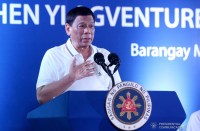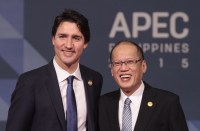Chinese State Councilor and Foreign Minister Wang Yi has spoken at a lengthy press conference during the Two Sessions. Speaking for around two hours, Wang outlined China’s goals to enhance cooperation with multiple partners in a spirit that combines issue-by-issue problem solving with the material benefits of Belt and Road connectivity.
ASEAN/South China Sea
State Councilor Wang highlighted that 2018 was a watershed year in strengthening China’s relations with the ten member Association Of South East Asian Nations (ASEAN). Last year in Singapore, Wang and his ASEAN counterparts affirmed a long term commitment to the Code of Conduct (COC) in the South China Sea. This dialogue based problem solving mechanism has already defused erstwhile tensions in the Sea whilst helping to outline a future roadmap for win-win cooperation between China and its ASEAN neighbours and partners.
Wang reiterated that it is China’s desire to positively intensify COC discussions in a manner that is in keeping with China’s holistic commitment to an historic policy of non-aggression. He also discussed the opportunities for increased Belt and Road connectivity with ASEAN members under the framework of the free trade agreement in place between ASEAN and China.
Taken as a whole, ASEAN-China relations have every reason to continue on their current trajectory and to accelerate in an era where the wider South China Sea region has come to reject hostility as a suitable problem solving device. This will happen all the more rapidly if outside forces do not meddle in ASEAN-China relations. In this sense, a golden era in ASEAN-China relations stands on the horizon.
Korean peace
Wang expressed China’s overall optimism in respect of the Korean peace process - an optimism that from different perspectives is nevertheless shared by Seoul, Pyongyang and to a degree even Washington. Wang understood that the Kim-Trump Hanoi Summit was a crucial stepping stone rather than an end in itself and as such, further dialogue on the issue should be encouraged by all sides. Wang restated China’s commitment to do all that it can to assure peace, de-nuclearisation and prosperity for the Korean people. As such, Wang stated that both the DPRK and US must be realistic with one another without asking for impractical concessions during the course of future negotiations.
Pakistan-India relations
Wang Yi underscored the fact that China and Pakistan are vital partners in development whilst China also looks to build upon last year’s thaw in relations with India. It is China’s perspective that no good can come of India-Pakistan confrontation and as such, Wang offered China’s role as a mediator in the conflict whilst also hoping to improve ties with India. China-Pakistan ties remain strong and deep.
China will continue to support Pakistan across multiple fields of development including CPEC and related Belt and Road connectivity projects. It is in the interest of China to see a more placid and prosperous south Asian region and as China now shares a seat on the Shanghai Cooperation Council with both Pakistan and India, there exists an opportunity to settle long burning issues for the benefit of all sides in a civilised discussion format.
China-US relations
Wang stressed China’s desire to reach a win-win conclusion to the current trade war. China stands at an historic moment in its history wherein reform and opening up continue to accelerate at a rapid pace. This presents unique opportunities for China’s many trading partners including the United States.
Rather than see China as an opponent, Wang stressed the inter-dependency of the two countries in the area of expanded bilateral trade. Although China continues to broaden its commercial partnerships across the world, as the US and China are the world’s two largest economies, it will naturally be in the interests of both to resolve disputes as soon as possible in respect of the trade war.
Wang also stressed that the Chinese government is very public in its support for the private tech firm Huawei using the appropriate legal means to challenge threats to its ability to trade openly, freely and transparently in markets across the globe, including in the smartphone hungry United States.
China -Russia relations
Wang Yi affirmed that this year will see a new gas pipeline from Russia into China becoming fully operational. This along with expanded bilateral trade and security cooperation will help to strengthen what Wang called a “mature partnership”. Wang also confirmed that Russian President Vladimir Putin will attend the forthcoming Belt and Road forum in China and that later in the year, President Xi will visit Russia for a bilateral meeting with Putin.
China-EU relations
In an age where the United States is becoming increasingly inclined towards economic protectionism, Wang stressed that if the EU is serious about its commitment to global trade, economic openness and the multilateral world order, EU states can benefit greatly by expanding trade with a Chinese market that is likewise ready to accept more EU goods than ever before.
Conclusion
Wang Yi’s statements affirmed that China will continue to seek three main goals in its foreign policy:
1. Bolster a more peaceful world order based on a mutual respect for national sovereignty, international law and the unique cultural characteristics of nations.
2. Help to bring about more international harmony through economic prosperity in line with the goals of the Belt and Road initiative. Belt and Road remains the most globally viable opportunity for nations to increase their material wealth through cooperation and connectivity across a multi-continent drive for economic modernisation and trade harmonisation.
3. Working with key partners on security issues with the aim of fighting the three evils of terrorism, separatism and religious extremism.
Overall, Wang’s vision for China’s modern approach to a changing world is one that offers both stability and consistency whilst also presenting innovative means of addressing the challenges of the 21st century.



